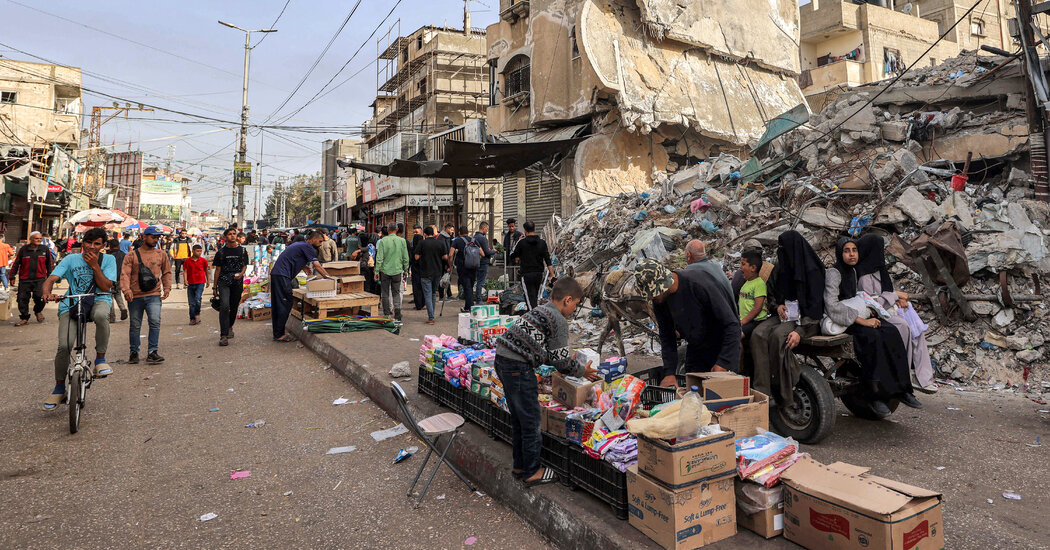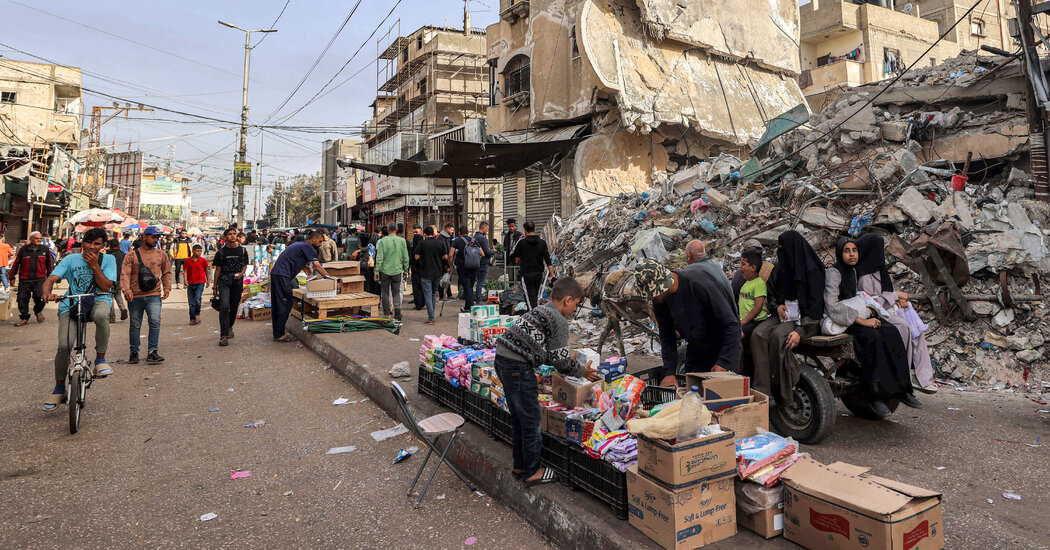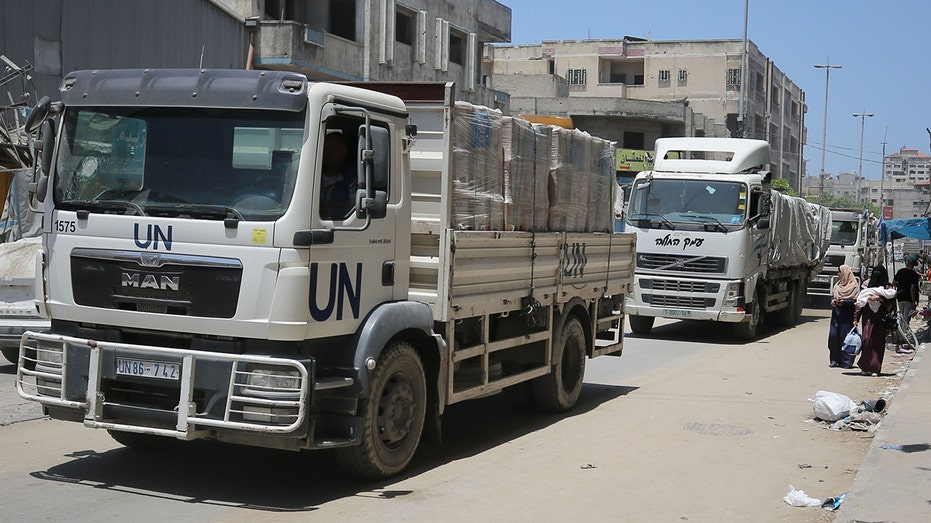
Food Prices Skyrocket in Gaza as Armed Looters Attack U.N. Aid Trucks
In the Gaza Strip, desperation is reaching new heights as food prices surge following the violent looting of nearly 100 United Nations aid trucks. This incident has severely escalated an already dire humanitarian crisis, further jeopardizing the lives of millions who rely on aid to survive.
Violent Looting of U.N. Aid Convoy
On a recent Saturday, a convoy of 109 trucks managed to cross into Gaza from Israel. Unfortunately, the situation quickly deteriorated as armed men targeted the vehicles upon their entry. According to the United Nations Relief and Works Agency for Palestine Refugees in the Near East (UNRWA), nearly 97 of these trucks were subjected to violent looting, with crews forced to unload their shipments at gunpoint.
UNRWA stated, “Due to critical shortages of flour, all eight U.N.-supported bakeries in Deir al-Balah and Khan Younis have been operating at diminished capacity for weeks. Many have been forced to shut down entirely.” The agency warned that without immediate intervention, food shortages are expected to worsen, affecting the lives of over 2 million people reliant on humanitarian aid.
Escalating Food Prices
The looting incident significantly affected the already crippled food supply chain in the region. A local woman from Deir al-Balah, speaking to the Associated Press, revealed that flour is now being sold for over 0 per bag. “It is extremely difficult to find flour at any price,” she lamented, highlighting the extraordinary challenges faced by residents in Gaza.
The soaring prices are not merely a result of supply issues; they are emblematic of the broader humanitarian crisis affecting the Gaza Strip. UN spokesman Stéphane Dujarric emphasized that the Israeli military had rerouted the aid convoy through an “unfamiliar, alternative route” before it was looted near the Kerem Shalom border crossing.
Accountability and Blame
As the situation unfolds, accusations are flying in multiple directions. Israel has pointed fingers at criminal gangs and the Palestinian extremist group Hamas for the looting of humanitarian aid intended for the civilian population. However, Bassem Naim, a senior Hamas official based abroad, stated that the looters were likely young Bedouins in the region, specifically near Rafah and close to Israeli military positions.
Adding to the chaos, Al-Aqsa TV, a media outlet affiliated with militants, reported that Hamas-run security forces took action against the looters, claiming the operation resulted in 20 deaths. This complicated web of accusations only deepens the already fraught context in which aid efforts are taking place.
Life in Gaza: A Desperate Struggle
Displacement and scarcity are not new problems for the people of Gaza. Nora Muhanna, a displaced resident from Gaza City, expressed her frustration, stating, “From the beginning, there are no goods, and even if they are available, there is no money.” This sentiment captures the despair experienced not just by Muhanna but by countless others attempting to navigate life amid soaring prices and dwindling supplies.
The ongoing blockade and military actions have created an insurmountable barrier to accessing the basic necessities of life. With the average resident’s income rendered nearly useless due to inflation and rampant price increases, humanitarian needs continue to grow exponentially.
UNRWA’s Criticism of Israeli Policy
Against this backdrop, UNRWA has positioned itself as a voice of accountability, criticizing the Israeli government’s handling of the aid crisis. The agency underscored Israel’s obligations under international law to ensure the population’s basic needs are met and to facilitate the safe delivery of aid.
“With the aid crossing into Gaza, the Israeli authorities continue to disregard their legal obligations,” UNRWA emphasized. They argued that responsibility for the aid does not cease upon crossing the border, but rather persists until assistance reaches those most in need.
This highlights the urgency of the current crisis and the need for immediate and effective interventions to alleviate the suffering of Gaza’s inhabitants. The agency’s criticism points to a broader issue regarding the international community’s role in mediating humanitarian efforts and holding responsible parties accountable.
The Way Forward
As food prices continue to soar and humanitarian aid is intermittently cut off, the situation in Gaza is at a breaking point. The looting of UN aid trucks is not just a logistical failure; it symbolizes the fraying social fabric and increasing desperation faced by millions.
In light of the ongoing violence and humanitarian concerns, it is crucial for international organizations, local authorities, and community leaders to work together towards a solution that prioritizes the safety and well-being of Gaza’s population. Only through collaborative efforts can a sustainable path forward be forged, ensuring that those who have borne the brunt of conflict and scarcity receive the aid and support they so desperately need.
Without immediate action and a commitment to change, the outlook for Gaza will continue to remain bleak, with the specter of increasing violence and deprivation looming large.
The Associated Press contributed to this report.


















